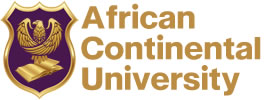YEAR FOUR SEMESTER ONE
| COURSE CODE | COURSE TITLE | T | P | C |
| Core Courses | ||||
| ENDV 401 | Development Policy Analysis I | 3 | 1 | 3 |
| ENDV 403 | Environment, Industry and Development I | 3 | 1 | 3 |
| ENDV 405 | Political Ecology and Development I | 3 | 1 | 3 |
| ENDV 400 | Project/Dissertation I | 0 | 3 | 3 |
| Electives: | Select Two Electives From This Section | |||
| ENDV 407 | Environmental Modelling I | 3 | 1 | 3 |
| ENDV 409 | Environmental Institutions | 3 | 1 | 3 |
| ENDV 411 | Environmental Health and Development 1 | 3 | 1 | 3 |
| ENDV 413 | Forest Management | 3 | 1 | 3 |
| ENDV 415 | Rural Land Use and Development | 3 | 1 | 3 |
| Total | 18 | 13 | 18 |
ENDV 401 DEVELOPMENT POLICY ANALYSIS I (3,1,3)
To introduce students to various development theories, analytical tools and planning models within which national policies are managed. The concept of development policy and underpinning theories will be treated. Issues such as the structure of dependence, Regional domination theory, sub-national development planning, Core-periphery models and their application in development planning and their national policy implications in developing countries will be studied.
ENDV 403 ENVIRONMENT, INDUSTRY AND DEVELOPMENT I (3,1,3)
This course would examine to the dynamics of human interactions with the environment and the developmental implications. Topics include: history of sustainable development; politics of environmental resources; human-environment interactions; livelihoods; population; poverty and environment relationships. At the end of the course students would have developed the ability to identify and describe concepts from the course, as presented both in lecture and through readings and practice.
ENDV 405 POLITICAL ECOLOGY AND DEVELOPMENT I (3,1,3)
This course examines the politics of the environment and how it impinges on development. The course explores further, the environmental politics as focused on the role of government and interest groups in shaping specific environmental policies. Political ecology course therefore would expands our understanding of politics to examine the roles environmental rhetoric, governance and discourses, ideology, and knowledge; politics and environmental change; economic systems in the context of plural globalization; as well as gender-based dimensions of resource ownership and utilisation with special reference to Africa in the Global space.
ENDV 407 ENVIRONMENTAL MODELLING 1 (3,1,3)
The import of this course is to expose students to the application of statistic and mathematics in computer environment to solve real life problems under controlled conditions. Some of the aspects to be studied include definition of fundamental concepts, what are models, the various types of modelling; stochastic, deterministic, etc. and how the modelling process is development and built in the context of the environmental systems. Also to be studies are development variables and how they can be parameterised. These are meant to generate the understanding of the nature and purpose of environmental modelling among students.
ENDV 409 ENVIRONMENTAL INSTITUTIONS (3,1,3)
In the forefront of the environmental awareness are the environmental institutions whose activities have been custodial to the global environment. The course expose students the types and roles of the various environmental institutions from the local to the global, their activities which range from advocacy to financing and their challenges. Some institutions of interest for in-depth studies are the United Nations Environment and Development (UNEP), Global Environmental Organisation (GEOs) Non-governmental Environmental Organisations (N-GEOs), among others and their roles in enforcing relevant environmental laws, with specific examples among each category.
ENDV 411 ENVIRONMENT, HEALTH AND DEVELOPMENT (3,1,3)
The course explores the interrelationships between health and development. It will use specific examples from developing countries to examine the causes and developmental impact of environmental sanitation and diseases. Concepts of epidemics, pandemic, and endemic in relation to diseases will be explored. The socio-cultural and economic factors of waste management on development are also examined. Students are also to be predisposed to policy analysis in addressing health, environment and development problems in developing countries.
ENDV 413 FOREST MANAGMENT (3,1,3)
The course espouses the concepts of forest ecology of plant communities. It further examines renewable natural resources, their availability distribution and potential for development. The important of forest trees and wildlife, with emphasis on Ghanaian species will be discussed. Also to be considered is Forest sector policy, plans and programmes such as afforestation identification and characterisation of major and minor timber and their uses, felling, logging and transportation.
ENDV 415 RURAL LAND USE AND DEVELOPMENT (3,1,3)
To give students insights into the origins, scope and development of rural land uses. Also to be treated are the ramifications of customary and common land tenure and land law. The theories underpinning these processes and mechanisms of spatial planning will be treated in this course. The course will also examine the linkages between rural areas and their urban dichotomous relationships.

